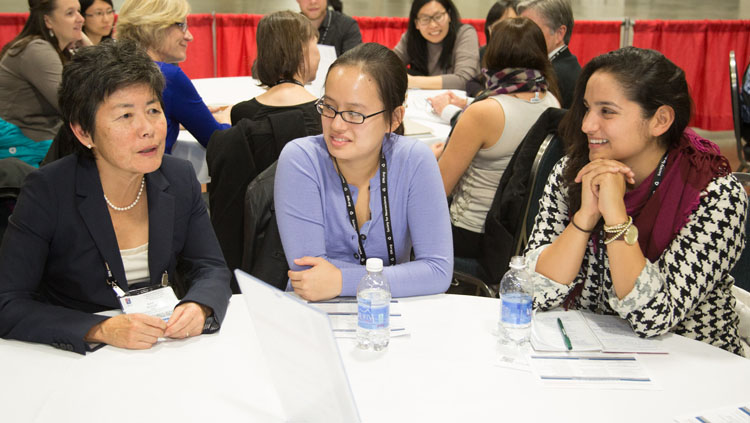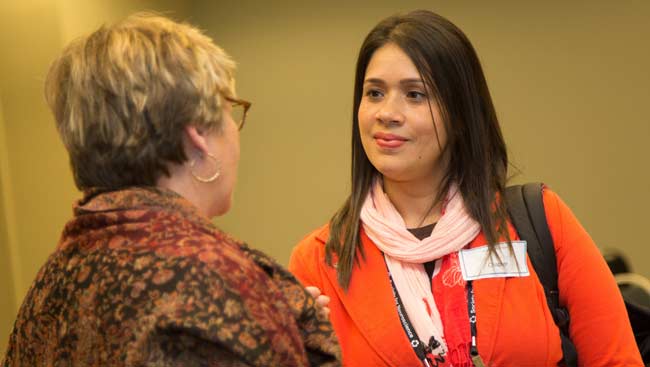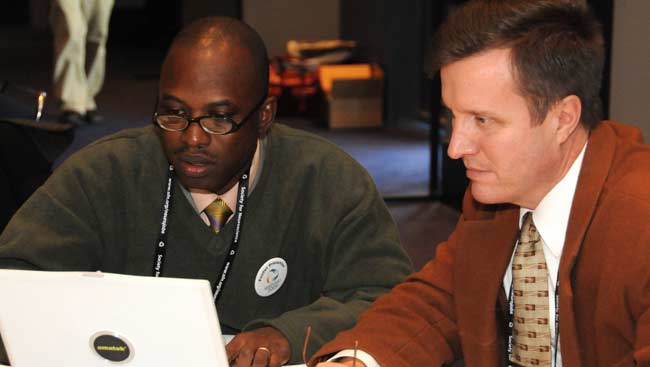Here's How to Effectively Mentor Diverse Students
- Source: University of Michigan Rackham Graduate School
- Featured in:
- Best Practices for Mentoring Relationships

Graduate education is continually evolving. Content and practices have changed over the decades, and so have the students. The combination of women, students from historically underrepresented groups, international students, LGBT students, students with disabilities, and students with children constitutes the majority of graduate students in the United States. The diversity of individuals in graduate education means what is worth preserving and transmitting and what is rooted in assumptions about homogeneity and should be adapted or discarded needs to be examined.
Research on the role that social identity plays in an individual’s ability to succeed in graduate school indicates that there are issues that call for attention and thoughtfulness on the part of mentors.
Consider how the following might play into how you mentor current and future students:
Need for Role Models
Students from underrepresented or marginalized groups have a harder time finding faculty role models who might have had experiences similar to their own. If the other faculty and graduate students in your department are ostensibly homogenous:
- Become more involved in efforts to identify and recruit new faculty and graduate students who represent diverse backgrounds.
- Don’t forget that you can provide excellent mentoring to students whose backgrounds are different from your own.
Questioning the Norm
Students from underrepresented or marginalized groups, particularly those in the social sciences and humanities, sometimes find that their research interests do not fit into the current academic standards. Some fear that when they select research questions focusing on race, gender, or sexual orientation, faculty will deem their work irrelevant and others will see them as being only interested in these topics for the rest of their professional careers. More commonly, they find that their experiences are missing from current theory and research. To address these issues:
- Be open to hearing students’ experiences and perspectives.
- Ask where students’ research interests lie rather than making assumptions about them based on their personal characteristics or past work.
- Think about ways that race, gender, sexual orientation, ethnicity, and other characteristics can help to expand the types of questions asked in your discipline and the approaches used for answering them.
- Direct students to interdisciplinary programs and research centers across campus that may provide them with a community of scholars whose interests intersect with their own.
Feelings of Isolation
Students from underrepresented groups and international students can feel particularly isolated or alienated from other students in their departments, especially if the composition of the current program is homogenous.
- Be aware of students who seem to find it difficult to take active roles in academic or social settings and take initiative to include them.
- Ask them about their research interests, hobbies, and activities outside of their program. Introduce your student to other students and faculty with complementary interests.
- Remind students of the wealth of organizations within or outside the university that might provide them with a sense of community.
Burden of Being a Spokesperson
Some students from underrepresented groups speak up when issues such as race, class, gender, ability, status, or sexual orientation arise — or are being ignored. There are other students who may not speak up, so instead of assuming that certain experiences are the norm for everyone:
- Question whether race, gender, or other characteristics provide different perspectives from those being expressed.
- Avoid calling on male or female, black or white, and old or young graduate students to be spokespersons for their gender, race, or age group. While their perspectives are wanted, allow them to offer their thoughts freely and remember that each is an individual viewpoint.
Concern About Speaking Up in Class
Certain factors may present greater obstacles for some students than for others. For example, research has shown that an overly competitive and critical atmosphere in graduate programs can alienate women and minority students who may feel that the system does not reward praise of other scholars. Keep this in mind by:
- Staying attuned to what’s happening in class.
- Trying to change the tenor of discussions when they become overly critical.
- Setting ground rules with your students for group discussions in your courses or labs, and explaining how your expectations for participation will advance students’ learning goals.
- Experimenting with ways of preventing a few students from dominating your seminars.
Suffering From Stereotypes
While each identity group may face different issues and experiences, all students from that group will not share the same thoughts and perspectives. Social class, geographic origin, economic status, health, and other factors also play an important role in shaping behaviors and attitudes. Recognizing each student’s unique strengths and scholarly promise will go far to eliminate stereotypes.
Adapted from University of Michigan Rackham Graduate School. Original source: How to Mentor Graduate Students: A Guide for Faculty.
*Learn more about SfN’s Neuroscience Scholars Program (NSP), which offers participants unparalleled access to networking, mentoring, and professional development opportunities.








